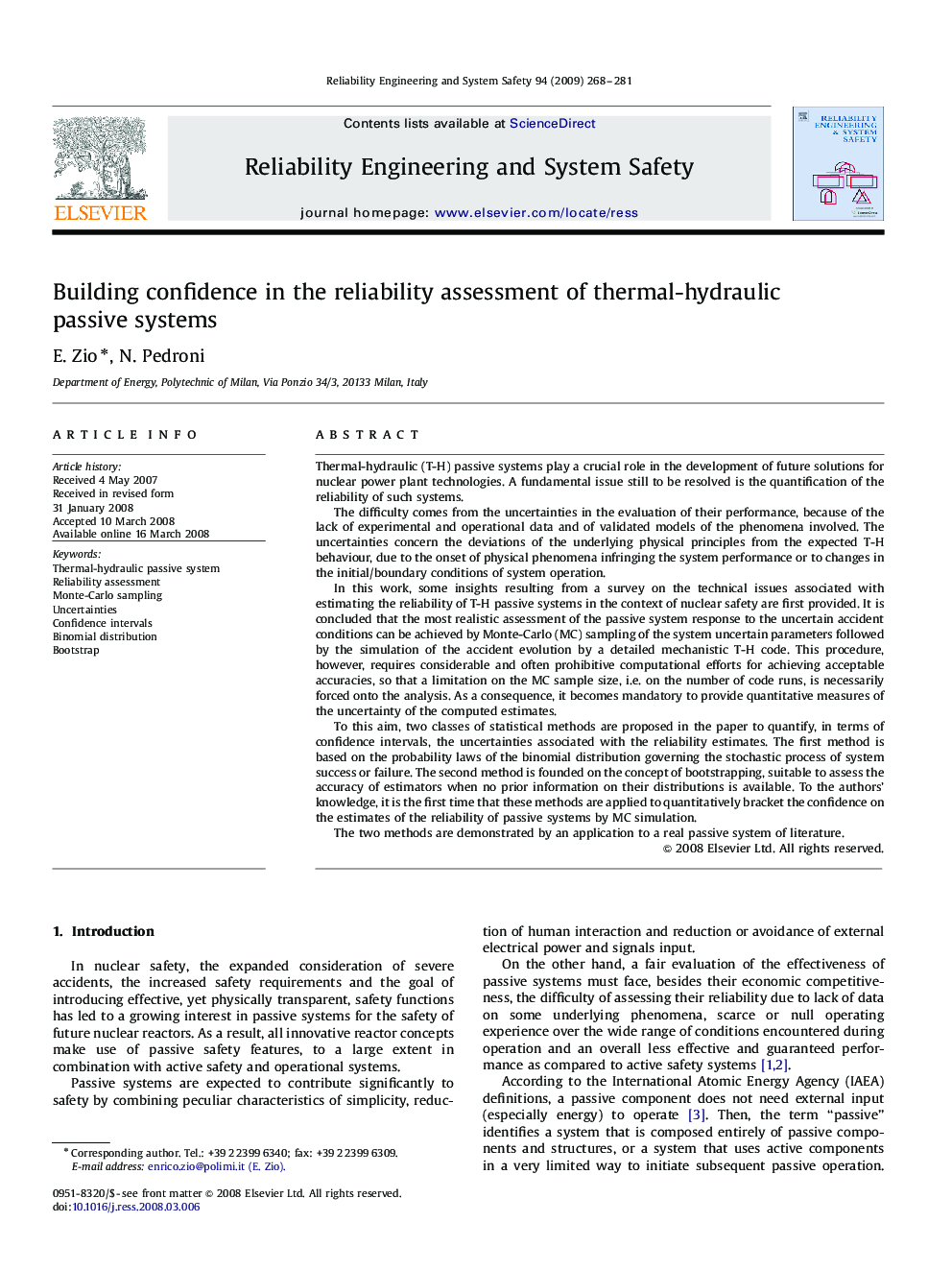| Article ID | Journal | Published Year | Pages | File Type |
|---|---|---|---|---|
| 805966 | Reliability Engineering & System Safety | 2009 | 14 Pages |
Thermal-hydraulic (T-H) passive systems play a crucial role in the development of future solutions for nuclear power plant technologies. A fundamental issue still to be resolved is the quantification of the reliability of such systems.The difficulty comes from the uncertainties in the evaluation of their performance, because of the lack of experimental and operational data and of validated models of the phenomena involved. The uncertainties concern the deviations of the underlying physical principles from the expected T-H behaviour, due to the onset of physical phenomena infringing the system performance or to changes in the initial/boundary conditions of system operation.In this work, some insights resulting from a survey on the technical issues associated with estimating the reliability of T-H passive systems in the context of nuclear safety are first provided. It is concluded that the most realistic assessment of the passive system response to the uncertain accident conditions can be achieved by Monte-Carlo (MC) sampling of the system uncertain parameters followed by the simulation of the accident evolution by a detailed mechanistic T-H code. This procedure, however, requires considerable and often prohibitive computational efforts for achieving acceptable accuracies, so that a limitation on the MC sample size, i.e. on the number of code runs, is necessarily forced onto the analysis. As a consequence, it becomes mandatory to provide quantitative measures of the uncertainty of the computed estimates.To this aim, two classes of statistical methods are proposed in the paper to quantify, in terms of confidence intervals, the uncertainties associated with the reliability estimates. The first method is based on the probability laws of the binomial distribution governing the stochastic process of system success or failure. The second method is founded on the concept of bootstrapping, suitable to assess the accuracy of estimators when no prior information on their distributions is available. To the authors’ knowledge, it is the first time that these methods are applied to quantitatively bracket the confidence on the estimates of the reliability of passive systems by MC simulation.The two methods are demonstrated by an application to a real passive system of literature.
